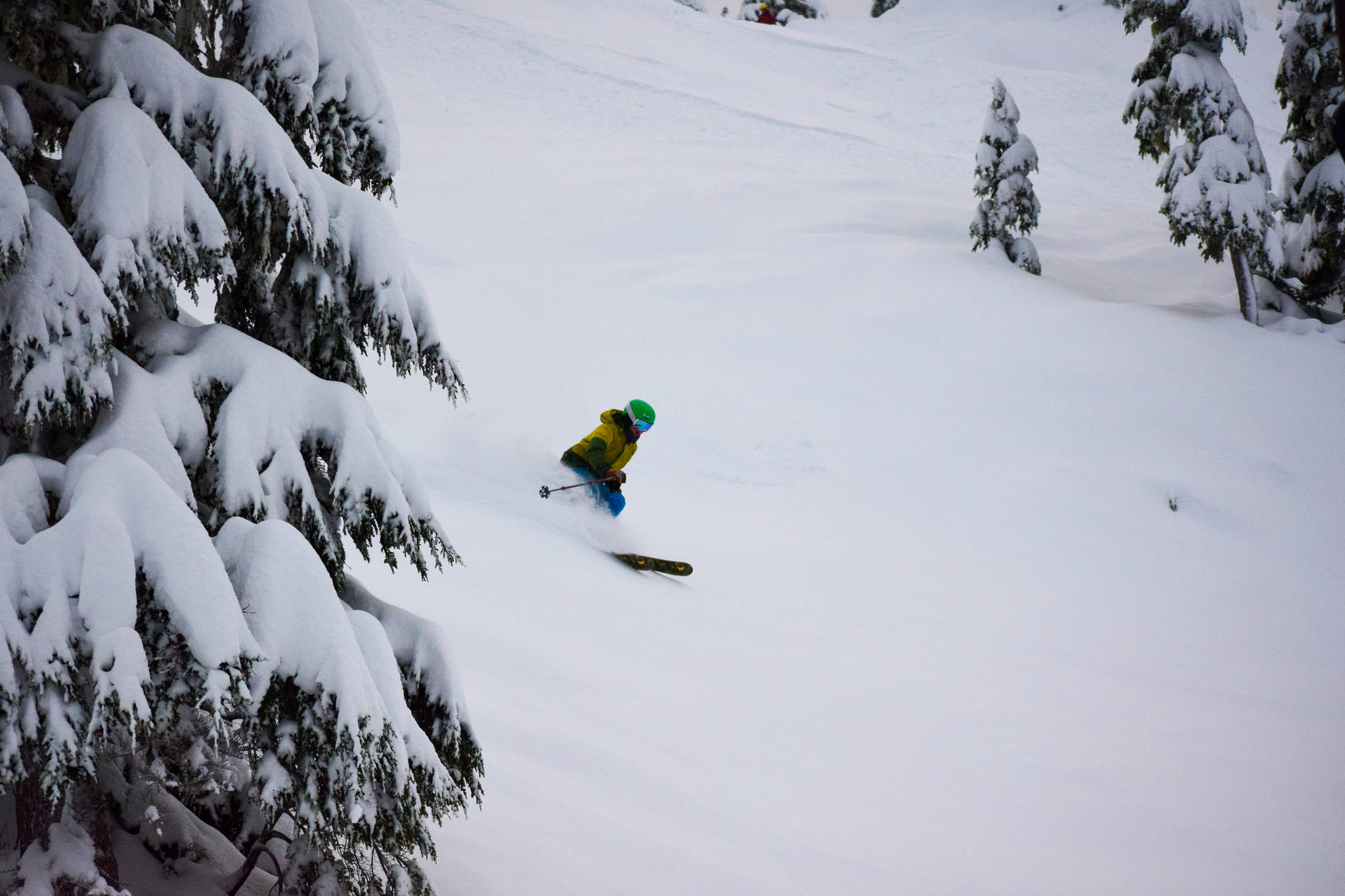Eaglecrest’s management team delivered a mountain of good news to the City and Borough of Juneau Assembly Wednesday night as the team presented the ski area’s fiscal year 2022 budget and provided an overview of this season’s activities.
“Eaglecrest became the focus of activity in Juneau. The snow cooperated, and the community rediscovered a gem,” said Mike Satre, president of the Eaglecrest board. “Like many places, Eaglecrest was forced to shut down 13 months ago, and we had questions about whether we could operate in the winter of 2021.”
Ultimately, the ski area did operate. A perfect storm of heavy snow coupled with pandemic-weary residents eager for outside recreation resulted in a record-setting season on the mountain and money in the bank.
“A lot more revenue has come in, and we are looking to end the year in the positive with revenue,” said Dave Scanlan, general manager at Eaglecrest. He said that by the end of the season — which was extended due to a snowy spring — $140,000 would move to the reserve fund to shore up future operations.
According to Satre, the staff’s hard work to create effective COVID-19 protocols led to one of the ski area’s most successful years. He listed efficient snowmaking, a record number of visits and an increase in seasonal product holders among the 2021 successes.
Maybe it’s raining at sea level, but Eaglecrest is chillin’
Looking forward
Despite this season’s triumphs, Scanlan said the fiscal year 2022 budget is conservative and underscores the long-term need to deal with the mountain’s aging infrastructure and other challenges. During previous seasons, the ski area has lost money.
Overall, the proposed budget reflects a $160,500 decrease in money requested from the city’s general fund, with a request of $825,000 for 2022. This compares to a request for $985,500 in 2021.
“We really made an effort to come with the most conservative budget we could,” Scanlan said. “We wanted to come with a conservative budget to anticipate the loss of summer revenue, and weather always is a factor in our season.”
He explained that a second summer without large cruise ships would mean that the revenue that flows from a zip-lining concession that sets up shop on the mountain will be lost. Though, Scanlan said he is exploring contracts with smaller cruise ships to recover some of the revenue.
In addition, Scanlan said that marketing efforts are paying off and producing a winter tourism program that attracts skiers from other cities in Alaska, Washington and other relatively nearby states.
He added that as more people work from home full-time, interest in housing near the ski area could grow as people seek to relocate to areas with abundant outdoor recreation opportunities.
Scanlan said the staff and board are working together on a capital plan to replace ski lifts and recruit and retain operating staff.
But, he said the budget calls for a few open positions to remain unfilled as a cost-saving measure and that Eaglecrest’s board will take a look at prices and consider increases for next year’s ski season.
The finance committee approved the proposed 2022 budget.
“Thank you for the optimistic presentation and news of happy skiers,” said Assembly member Maria Gladziszewski.
Added Mayor Beth Weldon: “Really good job pulling yourself out of a hole.”
By the numbers
Here’s a look at Eaglecrest’s season:
— The ski area operated for 92 total days and received at least 2 inches of snow on 51 of those days.
— 510 inches of snow fell at the top of the mountain, the second snowiest winter recorded there.
— 22 feet of snow fell in the parking lot.
— By the time the season ends, officials expect to count 85,000 seasonal visits. This exceeds the forecasted 80,000 visits and likely represents 8,000-10,000 unique visitors.
— More than 22,000 visits occurred during an exceptionally snowy March.
— 288,000 daily tickets were sold this season in addition to a record number of season tickets and multi-day passes.
— Participation in the snowsport school increased by 36%, with 6,153 lessons conducted. “We are feeding the pipeline of new users,” Scanlan said.
— Ski patrol members conducted avalanche reduction work on 29 days of the season.
— More than 8,000 rentals were sold. “This is the first year we had almost all rental gear out on the mountain,” Scanlan said. He added that rental gear was completely sold out a handful of days.
City kicks off the budget review process
About the budget process
The City and Borough of Juneau is developing the fiscal year 2022 budget that begins July 1, 2021. The citywide budget aggregates the spending for all city government operations, including those, like Eaglecrest, that operate as enterprise operations.
Every Wednesday until the end of May, assembly members will review proposed budgets from all component pieces to pass the final budget. The public can comment on the budget at a public hearing during a meeting on April 21 at 5:30 p.m.
•Contact reporter Dana Zigmund at dana.zigmund@juneauempire.com or 907-308-4891.

